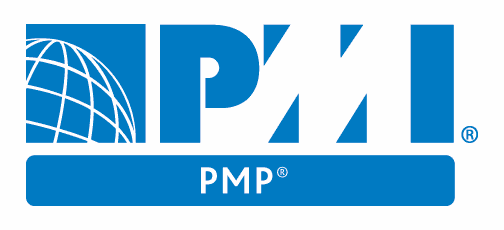
The Project Management Professional (PMP) certification is the most widely held certification for project managers. You can find PMPs in nearly every country and industry – there are over 900,000 PMPs in the world today. The certification, provided by the US-based Project Management Institute, is based on project management best practices, and is not industry specific. To take the PMP certification exam (a 4-hour computer-based exam consisting of 200 multi-choice questions), you must first meet the following requirements:
- Secondary degree (high school diploma, associate’s degree or the global equivalent)
- 7,500 hours leading and directing projects (within the past 8 years)
- 35 hours of project management education
OR
- Four-year degree
- 4,500 hours leading and directing projects (within the past 8 years)
- 35 hours of project management education
What is the source for PMP exam questions?
The main source of questions for the PMP exam is the Guide to Project Management Body of Knowledge (PMBOK® Guide) from PMI. The ten knowledge areas described in the PMBOK® Guide are:
- Project Integration Management
- Project Scope Management
- Project Time Management
- Project Cost Management
- Project Quality Management
- Project Human Resource Management
- Project Communications Management
- Project Risk Management
- Project Procurement Management
- Project Stakeholder Management
However, questions can be drawn from “other current titles on project management”.
What is the PMP certification value?
According to the Ninth Edition of the PMI Project Management Salary Survey, PMP certification holders earn 20 percent more than their non-certified peers, and according to the 2015 Pulse of the Profession® study from PMI, when more than one-third of an organization’s project managers are PMP-certified, organizations complete more of their projects on time, on budget and meet original goals.
What is the PMP certification cost?
The fee for the application and exam is US$555 for non-PMI members, and US$405 for members. Since PMI membership is around $130 per year, most PMP applicants join PMI for at least one year. (It is not necessary to be a member of PMI while you are a PMP). This fee obviously does not include the cost of any training that you might want to take.
Alternatives to PMP certification
Individuals unable to meet the requirements for the PMP exam may be interested the CAPM certification, also from PMI. Another entry-level certification is the Project+ certification from CompTIA. For experienced project managers, the main alternative to the PMP is certification through International Project Management Association member organizations.
How Do You Retain Your PMP Certification?
Once an individual becomes certified, they must acquire 60 PDUs (Professional Development Units) every three years to retain their certification. PDU’s can be earned from a variety of sources, including formal and informal studying/learning, speaking on project management topics, volunteering etc.
First Steps for PMP Certification
You can read more detailed information about the PMP application process. Many companies provide PMP prep courses, but they vary greatly in terms of content, quality, and duration. You can read about one person’s experience prepping for the PMP exam here. If you’re interested in taking a course with Key Consulting, you can read about our PMP prep course and/or contact us with questions.
Hi , I’m interested in doing the PMP certification. Could you give me an idea of the cost/timeframe/ class times if training is online or in person?
As of today, we only provide in-person training, at various locations, including Grand Cayman. You can find more details here: https://consulting.ky/project-management-training/grand-cayman-project-management-courses/